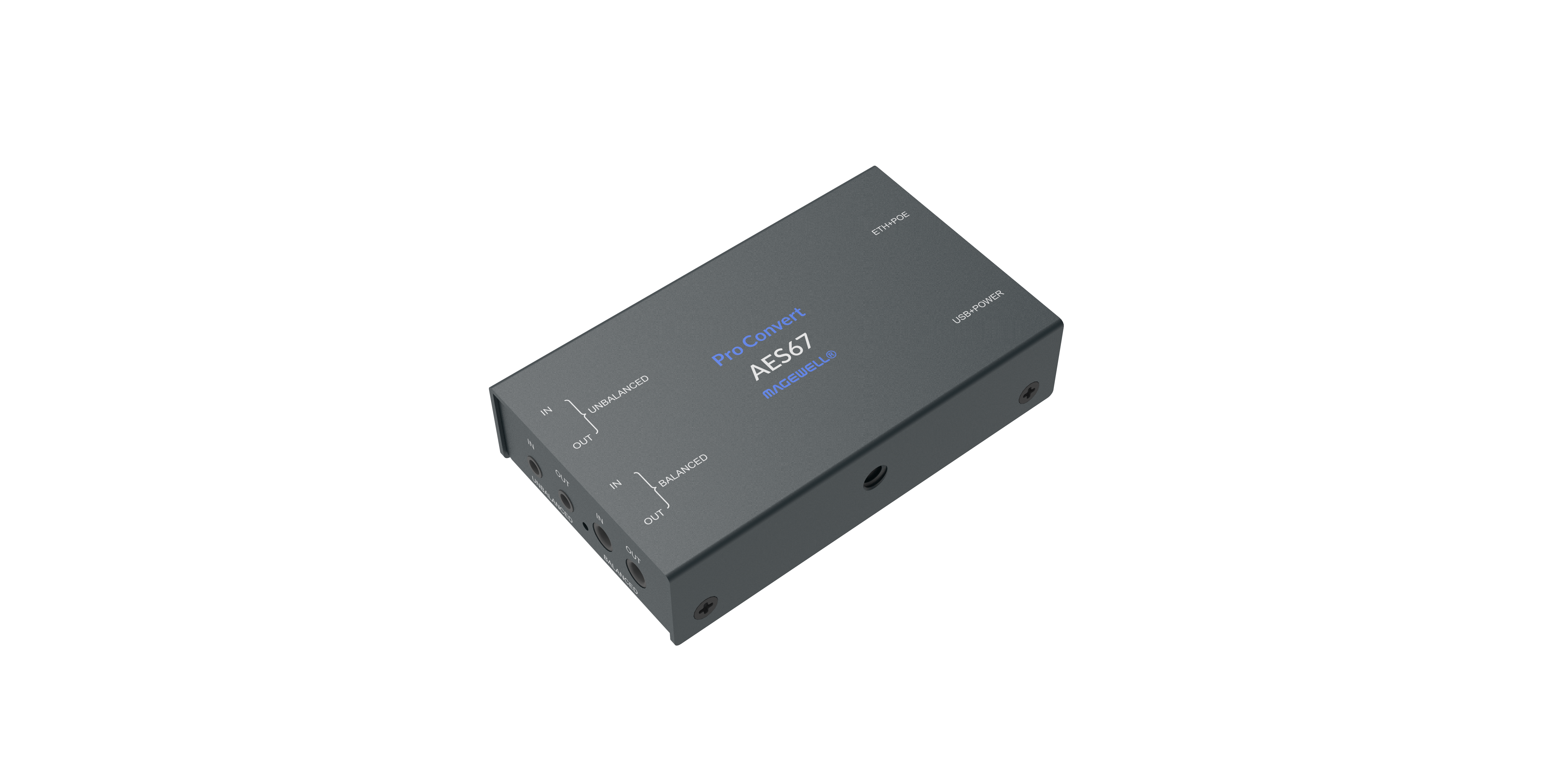Introduction to AES67
The AES67 standard was developed by the Audio Engineering Society and first published in September 2013. It is designed to enable high-performance audio-over-IP streaming interoperability between various IP-based audio networking technologies such as RAVENNA, Livewire, Q-LAN and Dante.
AES67 uses standard network infrastructure (switches, cables, etc.) to connect devices, simplifying audio transmission workflows and reducing deployment costs. In addition, AES67 has the following advantages:
1. Open standard for interoperability: AES67 is the official standard for AoIP interoperability, effectively breaking down barriers between different IP audio protocols and allowing users greater flexibility in selecting their preferred products for implementing IP-based audio transport. Many audio industry manufacturers including Telos, QSC, and Magewell has added support for AES67 in products such as mixers, speakers, audio encoders and decoders.
2. Flexible audio transmission settings: AES67 provides three audio sampling rates (96/48/44.1KHz), two audio sampling depths (16/24-bit) and supports anywhere from one to eight audio channels. This allows users flexibility in setting the quality of the transmitted audio and the required number of audio channels, while ensuring compatibility with other devices in the audio distribution chain.
3. Accurate synchronization mechanism: AES67 uses the PTPv2 (IEEE 1588-2008) standard for clock synchronization, which can achieve less than 2ms transmission of audio data to meet the needs of broadcasters and the professional audiovisual industry. This allows it to be used in synchronization-sensitive applications such as event commentary, audio conferencing, and other scenarios.
Magewell supports the AES67 standard in our recently unveiled Pro Convert AES67 multi-format IP audio encoder, decoder, and capture device. Supporting standards and protocols including AES67, NDI® and SRT, the device can flexibly convert between different IP media technologies while also offering a seamless bridge between analog audio, software, and IP networks.
